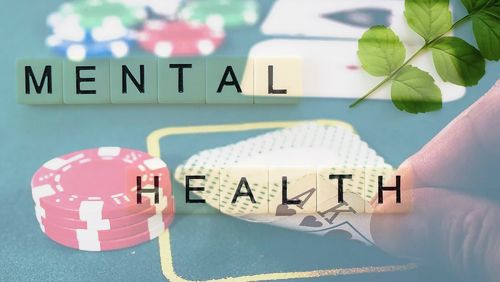So far, we’ve brought you three previous guides in our Poker Hacks series, with our bitesize guides to improving your poker diet, organising your sleep during poker events and even how to travel in an improved and more constructive way for your game.
This time around, we’re focusing on a subject that has thankfully come to the attention of the world in recent months a lot more, albeit at times for tragic reasons. Mental health is one of the most important factors you should consider when playing poker, and not just whether yours is great or not.
Poker can impact your mental health in many ways. It can make you tired, it can leave you feeling temporarily despondent or emotionally fatigued. The highs can be positively stratospheric while the lows closer to the ground than a lizard’s lower regions. Balancing your mental mood is a huge challenge and can have a massive effect on your bottom line, whether you’re a recreational player or one of the very best players in the world.
Here are five ways you can sharpen up your mental edge and protect yourself from tougher moments.
- Get a Support Network
As Garrett Adelstein told Joey Ingram in their deep dive into mental health during their 2019 interview, one of the best ways you can protect yourself from the mentally demanding world of playing poker, whether it’s for a living or for enjoyment alone, is by getting help from the people around you.
Having a support system in poker is vital to your chances of success. Like Adelstein, it could be a partner, but it could just as easily be a friend group or family members who have nothing to do with poker. Looking after your mental health is all about communication. Talk about your lowest points and you can reduce them in size and process them. Having supportive people around you to do just that can really help.
- Manage your Mindfulness
As Daniel Negreanu once wrote about Mindfulness, taking time out from poker is very important and Mindfulness and poker are becoming closely assimilated in recent times.
From Mindfulness practices include activities such as yoga, meditation and reading, all of which are proven to relax mind and body and can form a powerful barrier to any mental frailty that you might otherwise feel.
Another benefit of Mindfulness is that if you commit to writing a diary about your methods, should you ever stop and then feel like you could do with returning to Mindfulness, you’ll have a playbook on how to return to your best mental shape that you wrote yourself.
- Forgive Yourself for Errors
Playing poker can often feel like it’s a long journey packed with your own mistakes, which, basically, it is. That can, on the face of it, sound depressing and already mentally taxing. But being aware of the fact that poker is a game you can never master and that you’re working from a negative standpoint to begin with should eventually lead to you treating the whole experience as a positive one.
You start with nothing, in fact, less than nothing. You’ve paid money out. Every point from that moment is an improvement. Keeping a diary of your poker experiences – or even a spreadsheet of cashes that you’ve had – can be a great way of maintaining your mental strength.
- Surround Yourself with Solutions
One of the best ways of staving off periods of depression or low mood is to surround yourself with positives. While that should include positive results at the poker table and be centered around your support group, it can also just be a number of things you enjoy.
From food and drink to classic episodes of that TV series you know will always make you smile, surrounding yourself with solutions to any dips you might feel is vital to your mood.
- Employ a Stop/Loss Strategy
There are always going to be times when any of your positive methods at staving off testing times mentally fail. It’s called being human and it’s OK – everyone feels it at some point in their lives. When you’re playing poker, it can be tempting to force the issue and try to play your way out of trouble.
That’s often the worst thing you can do.
As I found out when I spoke previously to Ben Wilonofski and Arron Fletcher, poker can be a very demanding game on anyone’s brain. You’d employ a stop/loss strategy at the poker felt when it comes to money, so be mindful of the fact that your mental health is far more important than money ever will be.
You have a life outside of poker, as well as within the game. Take time out from the game, because poker will always be there for you when you want to return. If you take a break, get your head right, then you’ll always come back stronger.
